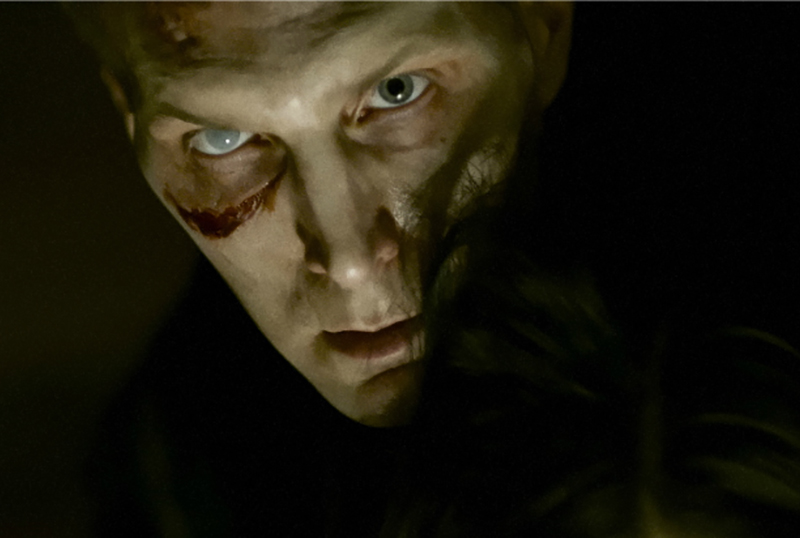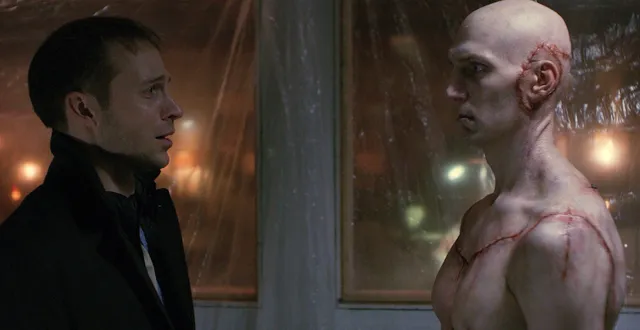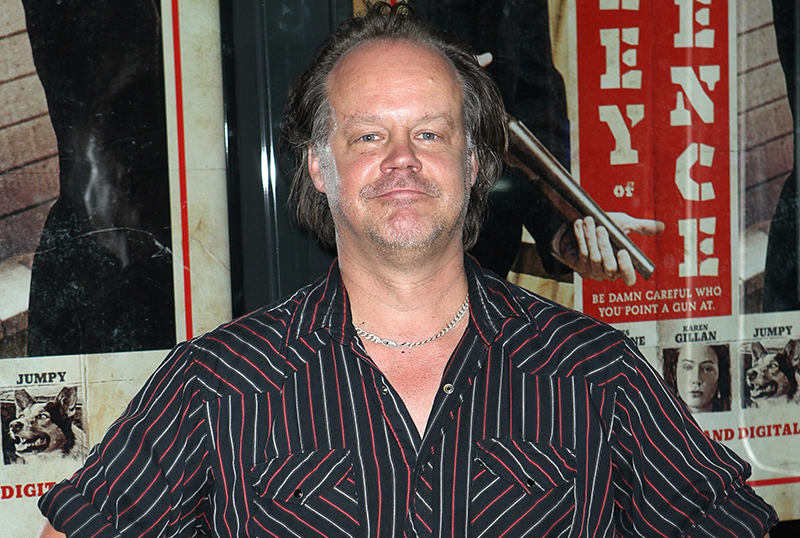CS Interview: Writer/director Larry Fessenden on Frankenstein-inspired Depraved
The time is almost here for the streaming arrival of Depraved, the modern-day update on Mary Shelley’s Frankenstein, and ComingSoon.net got the opportunity to chat with the horror outing’s writer and director Larry Fessenden (In a Valley of Violence) to discuss updating the classic monster tale. Check out the interview below, and check out Depraved streaming on Hulu starting this Friday!
RELATED: Exclusive Depraved Clip From Larry Fessenden’s New Film
Shot on the 200th Anniversary of Mary Shelley’s Frankenstein, veteran genre writer-director Larry Fessenden brings his unique vision of the literary classic in Depraved. Set in modern Brooklyn, this meditative reimagining of the novel explores the crisis of masculinity and ideas about loneliness, memory and the subtle psychological shocks that shape us as individuals.
Alex (Owen Campbell) leaves his girlfriend Lucy (Chloë Levine) after an emotional night, walking the streets alone to get home. From out of nowhere, he is stabbed in a frenzied attack, with the life draining out of him. He awakes to find he is the brain in a body he does not recognize. This creature, Adam (Alex Breaux), has been brought into consciousness by Henry (David Call), a brilliant field surgeon suffering from PTSD after two tours in the Mideast, and his accomplice Polidori (Joshua Leonard), a predator determined to cash in on the experiment that brought Adam to life. Henry is increasingly consumed with remorse over what he’s done and when Adam finally discovers a video documenting his own origin, he goes on a rampage that reverberates through the group and tragedy befalls them all.
The film is written and directed by Fessenden and produced by him alongside Chadd Harbold and Jenn Wexler.

Fessenden, who is well-known for his work in the indie horror field, originally envisioned the film as “my rocket ball Frankenstein” and wanted to tell the story in a Brooklyn loft with “a bunch of hipsters” to explore how they would react to the circumstances. But as he began writing the script and conducting research, he “discovered different elements” and wound up adding a Frankenstein doctor in a modern surgical background that put him on a path that he would stay true to, despite some hurdles thrown at him.
“I really believed in the mission of Depraved as sort of a quality horror film, where I could cast familiar names in the different roles and really make sort of a worthy film at $3-5 million,” Fessenden said. “But people weren’t biting, I wasn’t getting actors. It was a lot of chatter and a lot of meetings and handshakes in the showbiz industry. Eventually, I got very frustrated and thought, ‘This is absurd,’ and had a couple of friends teasing me saying, ‘Wasn’t it supposed to be like a return to ‘Habit,’ where you just made it on your own terms in New York City, what ever happened to that?’ So it took me a while to wake up from the haze, the fog of my experience with dabbling with Hollywood types and I finally just decided to make it on a much smaller scale.”
In addition to featuring a bigger budget and more set pieces, Fessenden was hoping to use the extensive money and Hollywood connections to land major stars in the cast, including wanting Jeremy Renner (Avengers: Endgame) and James McAvoy (It: Chapter Two) as the Doctor Frankenstein character, long before the latter would go on to play the role in the demolished Victor Frankenstein. But despite the setbacks, Fessenden encourages that continuing to push forward is fundamental in getting dream projects out there.
“That would be my advice to my kids, even though you also have first time directors come out of the gate who put their script in front of the right person, get the financing and make a good movie, that’s cool, too, but you can’t count on that exceptional career path,” Fessenden said. “So if you really love the medium of film, you can at least try your hand at it for a pretty low budget and see if you’re worth all that effort.”
While he didn’t initially conceive the film as such, Fessenden does see the parables in his life as an “outsider artist” in the indie filmmaking world, where one is “stuck in a Brooklyn loft” and waiting for the money to come in, with the story of the film.

“It is very funny, and I don’t mind seeing it that way, but I don’t think I was a surrealist,” Fessenden said. “I’m not a big fan of making movies about making movies, although they’re some of my favorite films like Ed Wood and Living in Oblivion, but I’ve never done that. But sure, this is a metaphor for being an indie filmmaker.”
One of the most important elements for Fessenden as a filmmaker has been using many of the same actors over his career, building almost a family with the stars across his movies, and that part of it stems from not only being a writer/director, but also an actor himself.
“Well, because we try to have a good time and we make it clear that you’re doing this for the sake of the art,” Fessenden said. “It’s really important, and there are different ways to be a leader, of course I think about that. You can lead through fear, which you can really only do if you have a certain amount of structural power, so I don’t have any of that. You really have to be willing to roll up your sleeves and show that you’re going to work as hard as possible, and then some people will step up and be a part of that. That’s how I get crew interested and as for actors, they need to know that I’m an actor and I know what they’re going through and I appreciate the vulnerability you have to show and the pressure to know your lines and concepts. So you just have to lead by example and hope people will find you.”
RELATED: CS Interview: Roger & Julie Corman Discuss Biographic Docuseries Cult-Tastic
Mary Shelley’s tale has been adapted countless times throughout the years and while there have been some acclaimed versions, there have also been numerous attempts to reshape and twist the narrative for a different story, such as I, Frankenstein and Victor Frankenstein failing to find love from audiences or critics. In making Depraved, Fessenden sought not to reinvent, but to stay true to the nature of its source material.
“I’m not starting with this story and going, ‘Oh, well we’ve never done that,'” Fessenden said. “We just want to get to the meat of the matter. What is this story really about? Now I’m not saying I conceived that that was my mission to really think about. Then it’s about men and it’s about hubris and what we do to our society to make things go on. What sort of forces are at play as this thing would happen, and what would it be like to be the monster?”
With all of the adaptations over the years, Fessenden does believe the James Whale 1931 version is his favorite, although the follow-up Bride of Frankenstein “had a little too much camp for me, even as a child,” remarking that he “liked the sparseness of the first one and portrayal of the monster.” He does also cite the Danny Boyle play adaptation of the tale with Benedict Cumberbatch (Doctor Strange) role reversing as both the titular doctor and the monster as “fantastic.”
Depraved arrives to terrify audiences on Hulu this Friday!
(Photo Credit: Backgrid Images)
Depraved
-
Depraved

-
Depraved

-
Depraved Screenshot1

-
Depraved

-
Depraved

-
Depraved

-
Depraved











